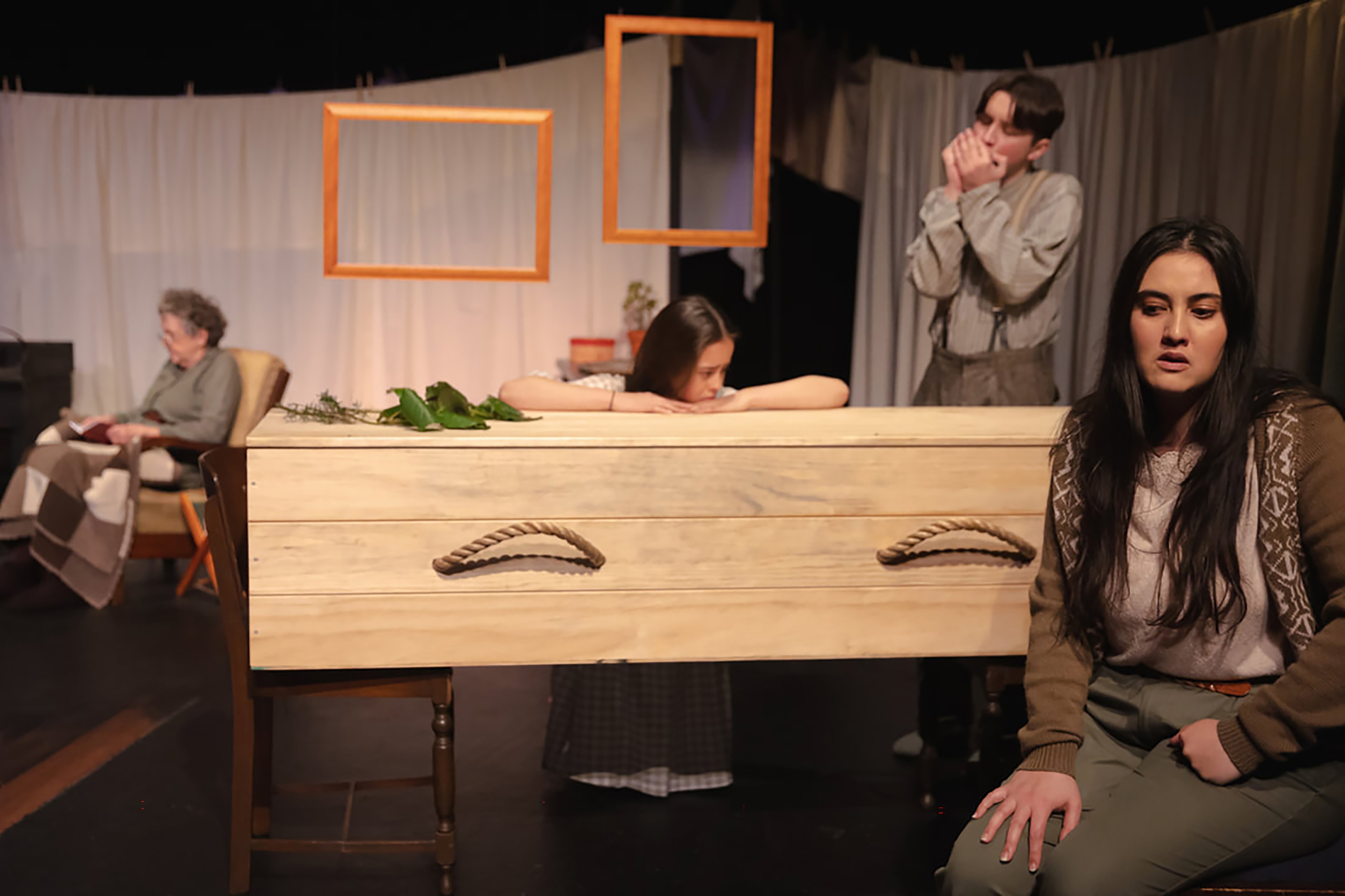"Wednesday to come": Mana wāhine and poverty in Aotearoa New Zealand
Stout Research Centre seminar series
4.10pm 29 May 2024
Te Pātaka Toi Adam Art Gallery
In collaboration with the Stout Research Centre for New Zealand Studies this talk is part of the seminar series Re-Reading Works on Poverty in Aotearoa New Zealand which takes a fresh look at some major Aotearoa cultural works on poverty. Across six weeks historians, curators, researchers, writers, and performers ‘re-read’ books, plays, novels, songs, and academic analyses from across the 20th century shedding light on the historic trajectories of poverty in our country. In looking back this series invites an evaluation of our contemporary situation, providing context for current issues such as inequality, our low wage economy, beneficiary shaming, gendered poverty and the long-lasting effects of colonisation.
Wednesday to come (1984) nā Renèe (Ngāti Kahungunu) is viewed as a ground-breaking depiction of the everyday life of a whānau during the Great Depression. In 2022, a remounted production of her play staged at Circa Theatre in Wellington depicted three generations of Māori women, mirroring the distinctive challenges faced by Renee’s own mother, Rose: “Hard times back there – hard times here. Nothing’s changed… nothing’s changed…”. This seminar by Dr Nicola Hyland, Senior Lecturer in Theatre at Te Herenga Waka—Victoria University of Wellington, will offer a re-reading of this formative play through the lens of wāhine Māori, exploring ways the text draws on whakapapa and experiences of being a Māori mother while poor. In bringing ringawera to the forefront of her narrative, Renèe illuminated the ongoing struggles of inequality in Aotearoa New Zealand’s history and in present society – manifestly for Māori women.
Dr Nicola Hyland is a Senior Lecturer in Theatre. Her iwi are Te Atihaunui-a-Pāpārangi and Ngāti Hauiti. Hyland's research investigates Māori performance and theatre, Indigenous performance and popular culture, intersections of youth, gender and sexuality in Indigenous performance, and affect and wairua in performance. Hyland has worked as a director, dramaturg and collaborative practitioner of devised performance work in Aotearoa and Australia, as well as roles as script adviser and cultural consultant. As a practitioner, she is committed to integrating tikanga Māori in the rehearsal space and advocating for decolonised and indigenised approaches to theatre-making.

Iris (Ni Dekkers-Reihana) with her children Jeannie (Mia van Oyen) and Cliff (Reon Bell) in 'Wednesday to Come', directed by Erina Daniels, Circa Theatre, Wellington: 2022. Photographer: Roc Torio.